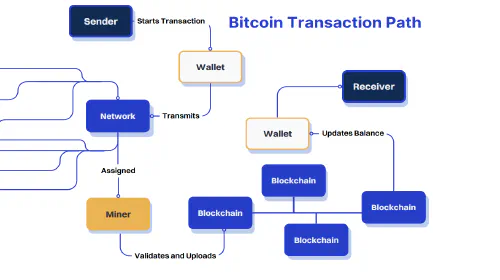Decoding the Encryption Debate
Salomon Kisters
Jun 19, 2023This post may contain affiliate links. If you use these links to buy something we may earn a commission. Thanks!
In the world of technology and data security, encryption is a widely debated topic. On one hand, it is seen as a crucial tool for protecting sensitive information from cyber-attacks and prying eyes. On the other hand, it can be perceived as a hindrance to law enforcement and national security efforts.
The encryption debate has become particularly heated in recent years, with high-profile cases such as the San Bernardino shooting and the WhatsApp-FBI standoff bringing the topic to the forefront of public discussion.
In this blog post, we will attempt to decode the encryption debate. We will explore the arguments for and against encryption, examine the various types of encryption methods, and shed light on the potential consequences of limitations and regulations on encryption.
Through this exploration, we hope to provide a better understanding of this complex and important topic.
The Importance of Encryption in Today’s Digital Age
Encryption is an essential tool in the world of technology and data security. It ensures that sensitive information, such as personal data, financial transactions, and confidential files, remains protected from cyber-attacks and unauthorized access. With the increasing digitization of our lives, the need for encryption has never been more important.
Hackers and cybercriminals have become more sophisticated in their methods of stealing and exploiting online data. They can launch attacks from anywhere in the world, and their motives range from financial gain to political espionage. Encryption provides a safeguard against these threats by making it virtually impossible for unauthorized individuals to access or intercept sensitive information.
Encryption also plays a crucial role in maintaining the privacy of communication. In today’s digital age, we rely heavily on messaging apps and social media platforms to stay in touch with family and friends. Encrypted messaging ensures that these conversations remain private and secure, offering a sense of comfort and trust in an often uncertain and vulnerable digital landscape.
Furthermore, encryption is essential for protecting the rights and freedoms of individuals and organizations. It ensures that sensitive information, such as journalistic sources or confidential business plans, remains secret and out of reach of governments or other entities that may have a vested interest in obtaining it.
Privacy vs Security
The debate around encryption is not as simple as one might think. On one side, some argue that encryption is vital to privacy and freedom of speech, while on the other side are those who claim that encryption enables criminals and terrorists to conduct their activities without fear of being caught.
Privacy advocates maintain that encryption protects individuals’ privacy and rights, as governments and corporations often try to access confidential information without consent. For example, journalists need encryption to protect their sources, and businesses require it to safeguard their intellectual property from competitors. Moreover, privacy advocates argue that encryption is necessary to prevent surveillance and data breaches.
On the other hand, security experts argue that encryption creates a safe haven for criminals, terrorists, and other malicious actors. They claim that encrypted messages and files make it impossible for law enforcement to investigate crimes, thereby threatening national security. Furthermore, they argue that end-to-end encryption can prevent companies from detecting and stopping cyber attacks, leading to significant economic damage and loss of valuable data.
Both arguments have their merit, and finding a balance between privacy and security is no easy task. While encryption is necessary to protect personal and business interests, it is also true that it can hinder investigations and national security efforts. As such, any attempts to legislate encryption or limit its availability should be approached cautiously, with careful consideration given to the potential consequences on both sides of the debate.
The Role of Governments in Regulating Encryption
Governments around the world have been grappling with the issue of encryption for years. While some countries have taken steps to limit the use of encryption, others have tried to strike a balance between privacy and security concerns.
One of the main arguments against encryption is that it is used to hide illegal activities. Law enforcement agencies argue that they need access to encrypted messages and data to investigate crimes and prevent terrorist attacks. However, privacy advocates argue that giving governments too much power over encryption would violate individuals’ constitutional rights and could lead to abuse.
In recent years, some countries have attempted to regulate encryption by requiring tech companies to provide backdoor access to encrypted data. However, this approach has been met with fierce resistance from tech companies and privacy advocates, who argue that backdoors would weaken encryption and make it easier for hackers and cybercriminals to access sensitive information.
Potential Risks and Consequences of Weakening Encryption
If governments do choose to weaken encryption or require backdoor access, there could be significant risks and consequences that need to be considered.
Firstly, weakened encryption could lead to increased vulnerability to cyber-attacks. If hackers or cybercriminals are successful in accessing sensitive data, this could have serious implications for individuals and businesses alike. Financial, medical and personal information could all be at risk.
Secondly, weakening encryption could also undermine trust in tech companies and government institutions. If individuals feel that their security and privacy are being compromised, they may be less likely to trust these institutions, which could lead to further social and economic implications.
Thirdly, requiring backdoor access could have a chilling effect on free speech and expression. People may be less likely to express their views or engage in political activism if they feel that their communication is being monitored or compromised.
Finally, the potential for abuse cannot be overlooked. If governments have too much power over encryption, this could be abused, and individuals’ rights could be violated. The government could access data for reasons that are not related to national security or crime prevention, leading to concerns about government overreach.
Exploring Alternative Solutions
With the potential risks and consequences of weakening encryption in mind, some have proposed alternative solutions to the encryption debate.
One idea is to improve the ability of law enforcement to access encrypted data through cooperation with tech companies. This could involve creating a standardized process for requests, and ensuring that companies have the necessary resources to comply with these requests in a timely manner.
Another suggestion is to invest in research and development of new encryption methods that can both provide strong security and allow for lawful access when necessary. This would require collaboration between experts in the field of cryptography, tech companies, and law enforcement.
Some have also proposed a more nuanced approach, where access to encrypted data is granted on a case-by-case basis, based on a judge’s order, and subject to strict oversight. This would balance security with the need for lawful access, and ensure that any access to data is made for legitimate reasons.
Lastly, it’s important to note that the encryption debate is not limited to the policies of governments. Tech companies, industry groups, and individuals all have a role to play in shaping the future of encryption. Encouraging more transparency and public debate around the issue could lead to innovative solutions that balance security with privacy and lawful access.
Conclusion
When it comes to the encryption debate, there are no easy answers.
On one hand, we want to ensure that our data and communications are protected from unauthorized access, theft, and surveillance.
On the other hand, we recognize that there are legitimate reasons for law enforcement to access that data, whether it’s in the pursuit of criminals, preventing terrorism, or protecting national security.
While there is no perfect solution, the key is striking a balance between privacy and security. This involves finding ways to protect data and communications from unauthorized access while also ensuring that law enforcement can access that data when necessary, subject to appropriate oversight and legal processes.
Ultimately, the solution to the encryption debate will require collaboration between tech companies, cryptography experts, law enforcement agencies, and governments. It will also require public debate and engagement, as well as a willingness to explore alternative solutions and approaches.
We can’t afford to ignore the encryption debate or to take a one-size-fits-all approach to the issue. Instead, we must work together to find innovative and effective ways to protect both our privacy and our security, recognizing that these goals are not mutually exclusive.
Stay informed with the latest insights in Crypto, Blockchain, and Cyber-Security! Subscribe to our newsletter now to receive exclusive updates, expert analyses, and current developments directly to your inbox. Don't miss the opportunity to expand your knowledge and stay up-to-date.
Love what you're reading? Subscribe for top stories in Crypto, Blockchain, and Cyber-Security. Stay informed with exclusive updates.
Please note that the Content may have been generated with the Help of AI. The editorial content of OriginStamp AG does not constitute a recommendation for investment or purchase advice. In principle, an investment can also lead to a total loss. Therefore, please seek advice before making an investment decision.

How to Create a Bitcoin Blockchain Address: A Step-by-Step Guide
Discover the process of generating a Bitcoin blockchain address through our detailed step-by-step tutorial. Get started with cryptocurrency now!

Benefits of Digital Payments for Businesses: Efficiency, Security, and Customer Experience
Digital payments refer to the use of electronic systems to transfer money. Businesses benefit from increased efficiency, lower fees, enhanced security, improved customer experience, and access to a wider customer base.

How Do Ethereum Developers Make Money?
Ethereum developers get paid handsomely for their work, despite the project being Open Source. And there are several ways they make money. Read onwards to learn more about how they do this.
Protect your documents
Your gateway to unforgeable data. Imprint the authenticity of your information with our blockchain timestamp